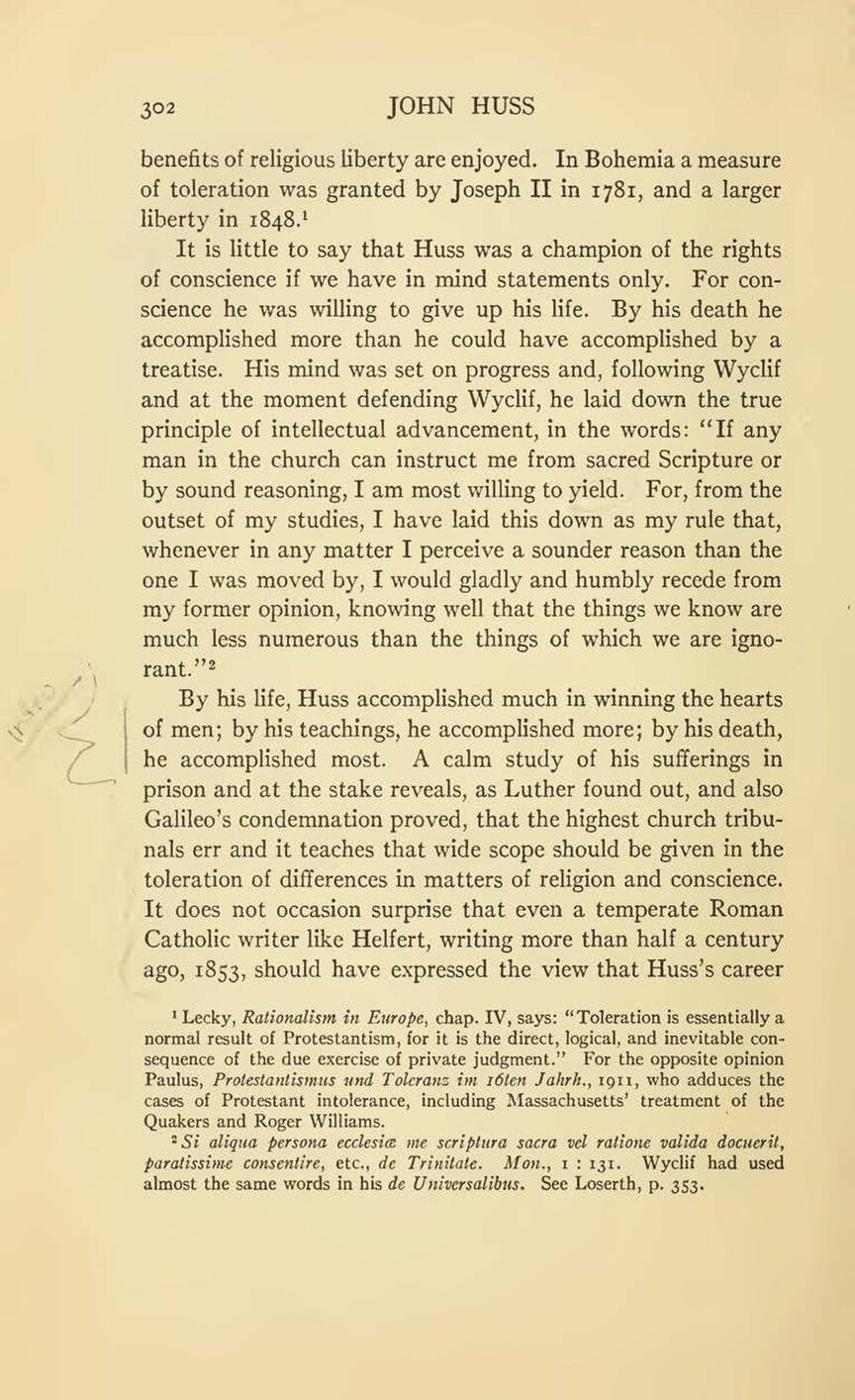benefits of religious liberty are enjoyed. In Bohemia a measure of toleration was granted by Joseph II in 1781, and a larger liberty in 1848.[1]
It is little to say that Huss was a champion of the rights of conscience if we have in mind statements only. For conscience he was willing to give up his life. By his death he accomplished more than he could have accomplished by a treatise. His mind was set on progress and, following Wyclif and at the moment defending Wyclif, he laid down the true principle of intellectual advancement, in the words: “If any man in the church can instruct me from sacred Scripture or by sound reasoning, I am most willing to yield. For, from the outset of my studies, I have laid this down as my rule that, whenever in any matter I perceive a sounder reason than the one I was moved by, I would gladly and humbly recede from my former opinion, knowing well that the things we know are much less numerous than the things of which we are ignorant.”[2]
By his life, Huss accomplished much in winning the hearts of men; by his teachings, he accomplished more; by his death, he accomplished most. A calm study of his sufferings in prison and at the stake reveals, as Luther found out, and also Galileo’s condemnation proved, that the highest church tribunals err and it teaches that wide scope should be given in the toleration of differences in matters of religion and conscience. It does not occasion surprise that even a temperate Roman Catholic writer like Helfert, writing more than half a century ago, 1853, should have expressed the view that Huss’s career
- ↑ Lecky, Rationalism in Europe, chap. IV, says: “Toleration is essentially a normal result of Protestantism, for it is the direct, logical, and inevitable consequence of the due exercise of private judgment.” For the opposite opinion Paulus, Protestantismus und Tolerans im 16ten Jahrh., 1911, who adduces the cases of Protestant intolerance, including Massachusetts’ treatment of the Quakers and Roger Williams.
- ↑ Si aliqua persona ecclesiæ me scriptura sacra vel ratione valida docuerit, paratissime consentire, etc., de Trinitate. Mon., 1: 131. Wyclif had used almost the same words in his de Universalibus. See Loserth, p. 353.
